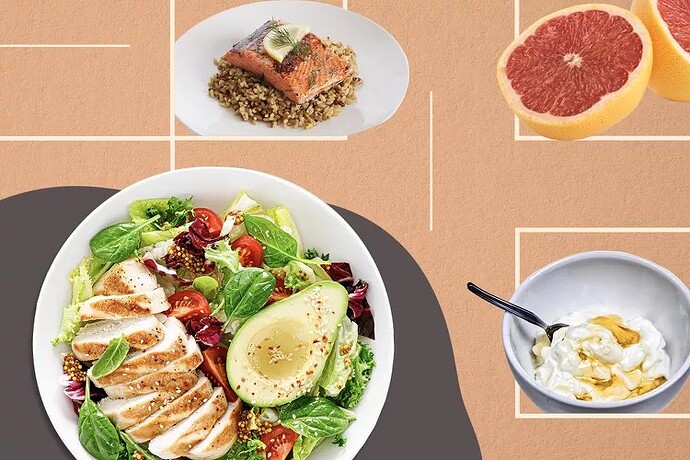Healthy and Balanced Meal Plan Ideas:
Consuming a healthy, balanced diet is a goal for many people. While this is an excellent goal for health reasons, the terms “healthy” and “balanced” will vary for each individual. A healthy, balanced diet generally means one that is rich in whole grains, fruits, vegetables, lean proteins, and healthy fats. A meal plan is a great tool to help you plan.
Meal planning can help keep you on track, no matter what your nutrition goal is. Prepping and planning doesn’t have to be time-intensive and complicated. A few simple steps, including basic meal constructs, making a shopping list, shopping strategically, and methodically preparing food ahead of time, are what make meal planning a helpful tool to keep you energized, meet your nutrition goals, reduce food waste, and save money.
Why Nutrition is Important for a Healthy and Balanced Diet
A healthy, balanced diet looks different for each person, as nutrition needs vary based on gender, height, weight, activity level, and many more factors. When thinking about what is “healthy” and “balanced” for you, there are many considerations. Think about taste preferences, nutrition needs, cooking ability, medical conditions, budget, and more.
Planning a daily menu isn’t difficult as long as each meal and snack has some protein, fiber, complex carbohydrates, and a little bit of fat.1 You may want to plan approximately 100 to 250 calories for each snack and 300 to 600 calories per meal; however, you may need more or less depending on your hunger levels and energy needs.
What to Eat for a Healthy Balanced Diet
A healthy diet generally includes a combination of the following:
-
Vegetables: Always a smart choice, aim to fill about half your plate with veggies. Add plenty of cruciferous veggies like broccoli, leafy greens, as well as colorful options like peppers.
-
Fruits: Go for fresh fruit whenever possible and try a variety of colors. Berries, grapes, apples, and grapefruits make great choices.
-
Whole grains: Eating grains in their whole form provides additional fiber and nutrients. This includes brown rice, oats, and 100% whole grain breads.
-
Lean protein: High in protein and relatively low in fat, lean proteins include grilled chicken, ground turkey, and white fish.
-
Healthy fats: Fatty fish, such as salmon and tuna, as well as nuts, such as walnuts, provide essential omega-3 fatty acids. Avocados are a great source of beneficial unsaturated fats.
